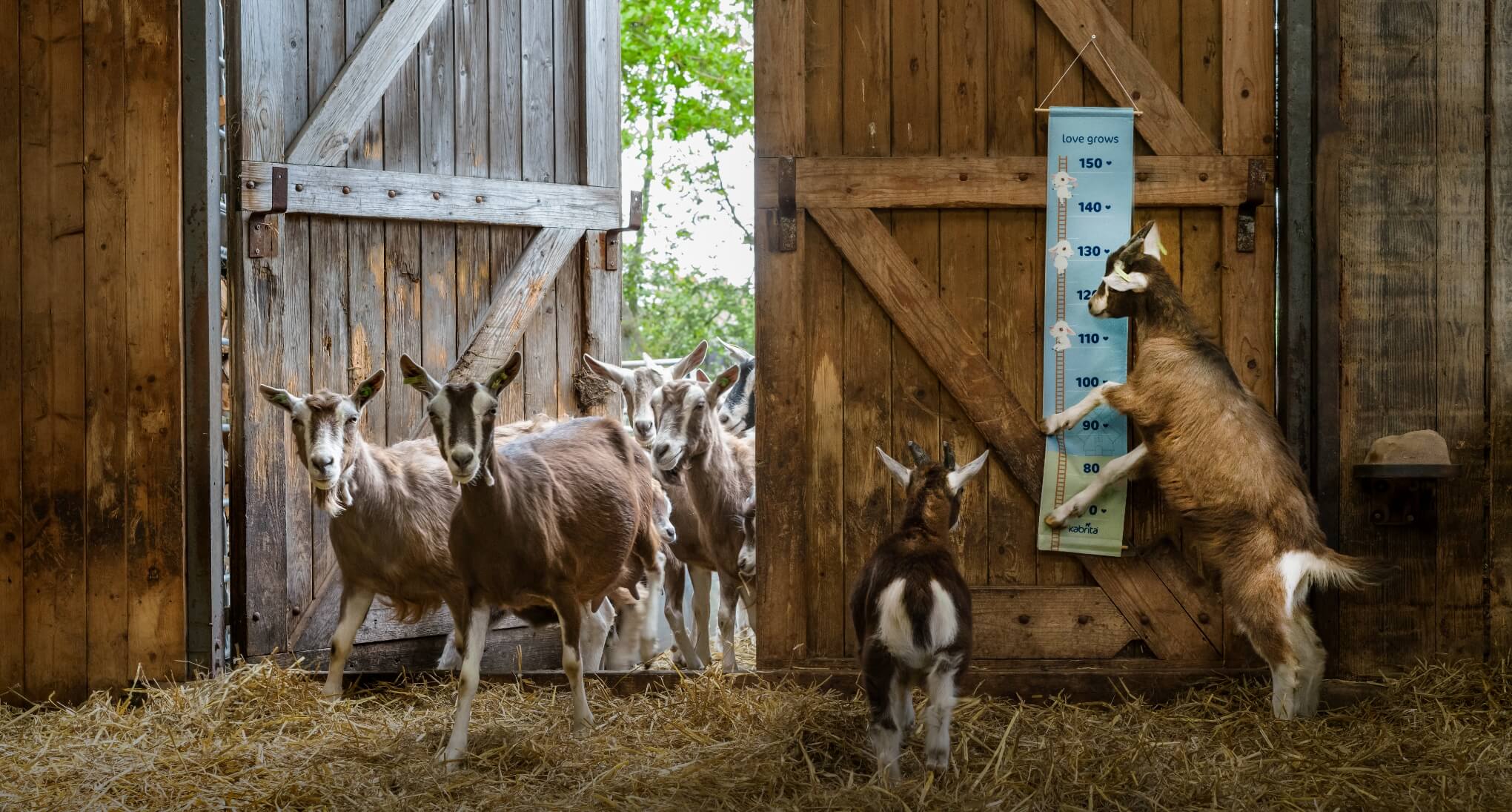When it comes to feeding your baby, there are many options available, but the decision to transition from breastmilk to formula can be a challenging one for many parents.
Whether it’s due to work or low breast milk supply or personal reasons, the switch from breastmilk to formula can be a difficult process for both the baby and the parents.
But with the right preparation and knowledge, the transition can be a smooth one.
In this blog post, we will be discussing some tips for parents who are transitioning their baby from breastmilk to baby formula feeding.

Tips for Transitioning from Breastmilk to Formula
- Take it Slowly
One of the most important things to remember when transitioning from breastmilk to formula feeding is to take it slowly.
It’s recommended that you start by replacing one feeding per day with formula and gradually increase the number of formula feedings over time.
This gradual transition will give your baby’s digestive system time to adjust to the new formula.
- Choose the Right Baby Formula
Choosing the right formula is crucial when transitioning from breastmilk to formula.
There are many different types of formula available, including cow’s milk-based, soy-based, and hypoallergenic formulas.
It’s important to talk to your pediatrician about which formula is best for your baby’s needs.
- Prepare the Formula Correctly
When preparing the formula, it’s important to follow the instructions on the package carefully.
Improperly prepared formula can cause digestive issues and other problems for your baby.
Always use clean hands and equipment when preparing the formula, and make sure the water you use is safe and boiled if needed.
- Be Prepared for Changes in Your Baby’s Bowel Movements
Switching from breastmilk to formula can cause changes in your baby’s bowel movements.
Formula-fed babies tend to have firmer stools, and they may not have bowel movements as frequently as breastfed babies.
If your baby is having difficulty with bowel movements, talk to your pediatrician.
- Watch for Signs of Allergies
Some babies may be allergic to certain ingredients in formula.
Watch for signs of allergies, such as hives, rashes, or difficulty breathing.
If you suspect your baby has an allergy, talk to your pediatrician immediately.
- Keep Breastfeeding if Possible
If possible, it’s recommended to continue breastfeeding while transitioning to formula.
This will help your baby adjust to the new formula more easily and can also help maintain your milk supply if you plan to return to breastfeeding later.
- Be Patient
Transition from breastmilk to formula can be a challenging process, so it’s important to be patient.
Your baby may take some time to adjust to the new formula, so don’t get discouraged if it doesn’t happen overnight.
With time and patience, your baby will eventually adapt to the new feeding routine.

European Baby Formulas
When it comes to choosing a formula, there are many different brands and types available on the market.
One option that many parents are turning to is European baby formulas.
European formulas are known for their high-quality ingredients and strict regulations regarding the manufacturing process.
Some of the most popular European formulas include Hipp, Holle, Kabrita, Topfer, Lebenswert, and Aptamil.
One of the main differences between European and American formulas is the types of ingredients used.
European formulas tend to use more natural ingredients, such as organic milk and lactose, while American formulas often contain synthetic ingredients and additives.
Additionally, European formulas are often free of genetically modified organisms (GMOs) and other harmful chemicals.

Goat Baby Formula
In addition to cow’s milk-based formula, there are also options for goat milk-based formula.
Goat milk is becoming a popular alternative to cow’s milk because it’s easier to digest and has a different protein structure.
Some popular goat milk-based formulas include:
Kabrita, Hipp, and Holle goat milk formulas from Dutch and German brands like Holle, Hipp, Topfer, and Lebenswert.
Goat milk-based formula is a good option for babies who may have difficulty digesting cow’s milk-based formula.
Kabrita is a Dutch brand that offers a range of goat milk-based formula products for infants and toddlers.
Their formula is made from high-quality goat milk and is fortified with essential nutrients to support healthy growth and development.
Hipp and Holle are two German brands that offer organic goat milk-based formula.
Their formula is made from 100% organic goat milk and contains no added sugars or artificial ingredients.
Hipp and Holle’s goat milk-based formula is a good choice for babies who may have sensitivities to cow’s milk-based formula.
Cow Formula
For parents who prefer cow milk-based formula, there are also many European brands to choose from.
Hipp, Holle, Topfer, Lebenswert, and Aptamil are some of the most popular European brands that offer cow milk formula.
Hipp is a German brand that offers organic cow milk-based formula.
Their formula is made from 100% organic cow’s milk and contains no added sugars or artificial ingredients.
Hipp’s formula is a good choice for parents who want an all-natural and organic option for their baby.
Holle is another German brand that offers organic cow milk-based formula.
Their formula is made from 100% organic cow’s milk and contains no added sugars or artificial ingredients.
Holle’s formula is a good choice for parents who want an all-natural and organic option for their infant.
Topfer is a German brand that offers a range of cow milk-based formula products for infants and toddlers.
Their formula is made from high-quality cow’s milk and is fortified with essential nutrients to support healthy growth and development.
Lebenswert is a German brand that offers organic cow milk-based formula.
Their formula is made from 100% organic cow’s milk and contains no added sugars or artificial ingredients.
Lebenswert’s formula is a good choice for parents who want an all-natural and organic option for their baby.
Aptamil is a Dutch brand that offers a range of cow milk-based formula products for infants and toddlers.
Their infant formula is made from high-quality cow’s milk and is fortified with essential nutrients to support healthy growth and development.
NOTE
Regarding Dutch and German Formulas you should know one important thing, both formulas even Dutch is made in Germany, however it is boxed and labeled in Dutch that is why it’s origin is said to be Dutch.
The only key difference is that Dutch Hipp and Holle formula comes in cans, while German comes in boxes, but overall it is still the same product you are getting.
If you are looking for German and Dutch Formulas and other European baby food products we strongly suggest checking our e-shop by broswing menu or going to home page and filtering products by brand or other specifics.
We work hard to provide the products for parents, especialy when time is of the essence, that is why we offer 1-3 Days DHL Express Shipping to USA and Canada!
Free Shipping for All Orders above 100$ !

Conclusion
Transition time from breastmilk to formula can be a challenging process for both parents and babies.
However, with the right preparation and knowledge, the transition can be a smooth one.
It’s important to choose the right formula and prepare it correctly, watch for signs of allergies, and be patient with the process.
When it comes to choosing a formula, European brands are a popular choice for many parents.
European formulas are known for their high-quality ingredients and strict manufacturing regulations.
Additionally, goat milk-based formula is becoming a popular alternative to cow’s milk-based formula for babies who may have difficulty digesting it.
Ultimately, the choice of infant formula comes down to the individual needs and preferences of each family.
It’s important to talk to your pediatrician about which formula is best for your baby and to choose a formula that meets your baby’s nutritional needs.